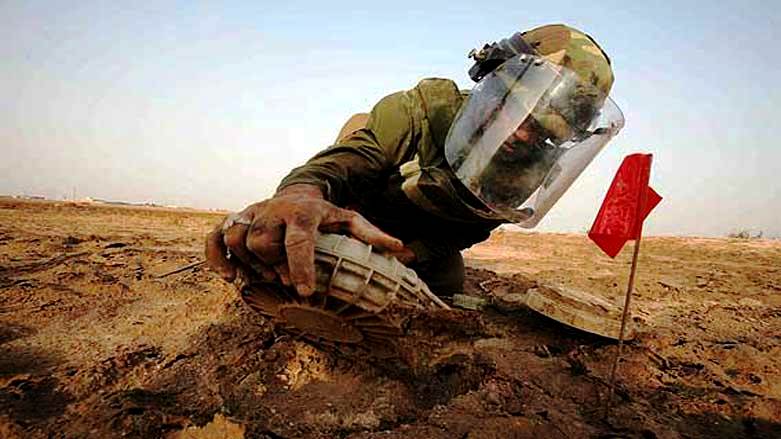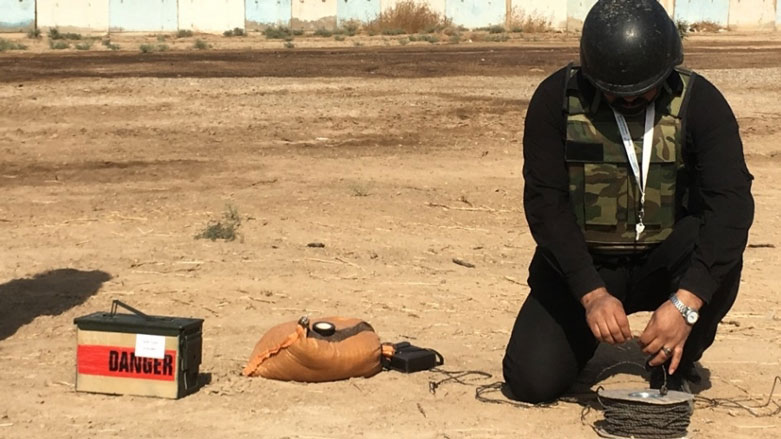Japan gives $4.5 million to clear explosives left by IS

ERBIL, Kurdistan Region (Kurdistan 24) – The United Nations Mine Action Service (UNMAS) announced the donation of $4.5 million from Japan to support Iraq emergency response related to humanitarian and stabilization efforts in areas liberated from the Islamic State (IS) still littered with explosives.
"Schools, hospitals, roads, bridges, electrical power stations and water treatment plants are still contaminated by explosive hazards in liberated areas," said the statement, sent to Kurdistan 24 by the United Nations Assistance Mission for Iraq (UNAMI) on Wednesday.
Retreating IS fighters routinely hid hundreds of mines and explosive traps under roads, in houses, buildings, farmland, yards, and even among children's toys.
With Japan's support, UNMAS Iraq will be able to further expand the much-needed but extremely dangerous and painstaking task of clearing bombs that remain a threat to many of the 2.3 million internally displaced persons (IDPs), should they return to their places of origin.
"Removing explosive hazards is the first step to commence rehabilitation and reconstruction activities with the Government of Iraq and UN partners, bringing the people of Iraq back to normal life and restoring economy," the statement continued.
UNMAS Senior Programme Manager Pehr Lodhammar added, “Japan’s continuous support sustains our vital operations and allows us to expand explosive hazard activities in Iraq.”
In the statement, Ambassador of Japan to Iraq Fumio Iwai stated that the assistance comes "as part of the new package of humanitarian and stabilization efforts to Iraq amounting to approximately USD 100 million. Japan is determined to serve displaced and returning people, refugees and host communities in Iraq, while supporting Iraq’s efforts for its development."
In addition to thousands of IS-planted bombs, several landmine fields remain active on the Kurdistan Region border with Iran, planted during the Iraq-Iran war, between 1981 and 1988.

